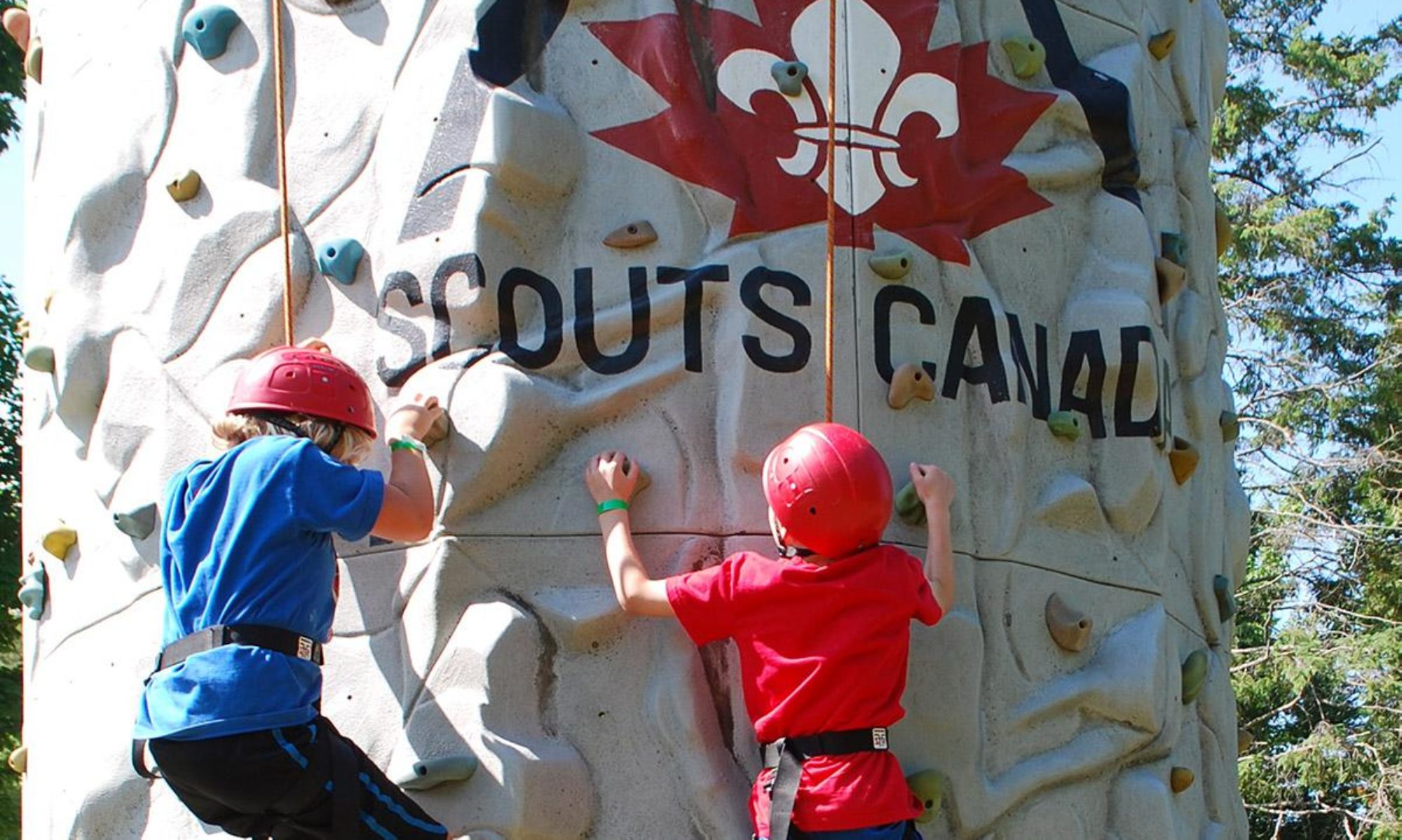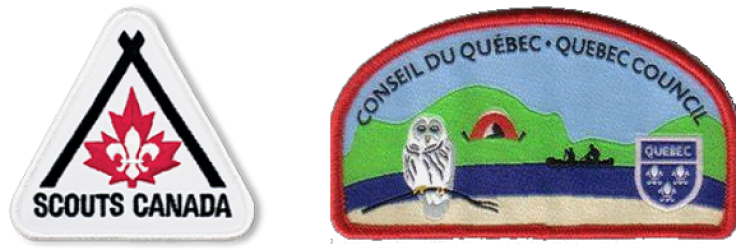Scouts Canada Standards
Scouts Canada Standards |
Pandemic Program & Activity Modifications
“How to safely run a section meeting during COVID-19”
Introduction
During a declared pandemic, Scouts Canada must maintain a position of safety leadership and social responsibility. In alignment with our Safety First Policy, Scouts Canada’s priority will be ensuring that activities are modified to ensure the safety of our members and to reduce the risk of disease transmission
A Pandemic Operational Plan is a required by most provinces at times of declared pandemics. This Pandemic Program & Activity Modifications Standard and the associated checklists and Adventure Pandemic Readiness Form are designed to meet the expected needs of most provinces.
Our Standards
- The Standard applies to all departments, functions, Councils, groups, sections, staff, volunteers and those acting in support of Scouts Canada activities during a local, national or international pandemic.
- The National Key 3 will determine the scope and duration of activation of this Standard.
- Notice of implementation and effective date of this Standard shall be given by the CEO of Scouts Canada or a person designated by them to provide notice.
- Incremental or greater requirements specified by Federal, Provincial and / or Municipal health and safety restrictions supersede those outlined in this Standard.
- The objective is to ensure that appropriate program modifications are both communicated and implemented to reduce the risk of disease transmission among Scouting youth, Scouters, parents and others planning or attending Scouts Canada activities. Activities cannot violate a public health order.
- All Scouting in-person activities must ensure program and plans are modified to reduce the spread of illness.
- For the purposes of this Standard, an ‘activity’ is any action or meeting involving those registered as members, or those eligible for membership in, Scouts Canada indulging any gathering for any purpose both indoors and outdoors, within or outside of Canada
- These include, but are not limited to, all section, group, functional and other meetings of any kind operating as Scouts Canada. This would include all section programming, all Council meetings, all training sessions, all events, all day camps, overnight camps, and all planning sessions.
- Each Council and Group is responsible for ensuring that they are aware of and in compliance with Scouts Canada, Federal, Provincial and Municipal Government health and safety restrictions
- For ALL Scouting Group & Section in-person meetings & activities the following requirements are mandatory:
-
- Social Distancing:
- Gatherings must be limited to 50 people or any gathering restrictions of a municipality or province that the event/meeting/gathering or activity is taking place within, whichever is fewer”.
- This includes parents or other individuals who are not actively participating in the activity but remain with the group.
- All activities will be limited to a maximum of two small teams (patrols) of 8 or fewer youth per patrol (maximum 16 youth per meeting).
- Hold virtual meetings where possible and appropriate
- Minimize the number of people attending in-person activities
- Minimize the number of households attending in-person activitiesA ‘patrol’ is a general Scouting term for a small team, typically 6 to 8 youth that embodies the Scout Method – Patrol System. Specifically, this refers to Lodges (Colony: Beavers), Lairs (Pack: Cubs), Patrols Troop: Scouts) and Expedition Teams (Company: Venturers).
- The Two-Scouter rule must always be in effect and maintained.
- Scouters, parents or guardians and youth must not attend the programs or other Scouting activities if they are sick, even if symptoms resemble a mild cold.
- Vulnerable or ‘at-risk’ persons should be strongly encouraged not to attend
- All persons ordered, and family members (or social bubble) of persons ordered, to quarantine or self-isolate under a Public Health order of a Municipality, Province or an order made under the Federal Quarantine Act are prohibited from in-person Scouting activities.
- Gatherings must be limited to 50 people or any gathering restrictions of a municipality or province that the event/meeting/gathering or activity is taking place within, whichever is fewer”.
- Physical Distancing:
- All meeting and activities are to be modified to maintain a physical distance of at least two meters (2m or 6 ft) from others.
- Minimise physical contact, unless required for an emergency, including all common greetings, such as handshakes.
- Equipment should be assigned to individuals only. Sharing of items should be minimised unless done so by members of the same household.
- Drop-off and pick-up procedures must be modified to ensure compliance with this standard.
- Food Provision:
- Eliminate or minimise food provision for regular meetings.
- Food and / or drink sharing is prohibited.
- Compliance with Federal, Municipal or Provincial Regulations
- Cleaning & Hygiene:
- Scouter-in-Charge must ensure that all equipment and spaces are cleaned and disinfected prior to and after use.
- It is strongly encouraged that each participant should be provided with assigned equipment or use self-owned, disinfected equipment.
- All participants must review requirements for pandemic hygiene practices
- Provide hand washing stations and/or hand sanitizer containing at least 60% alcohol must be made available for patrons.
- Activity plans must include frequent, thorough cleaning and disinfecting
- Access to public washrooms must be considered in the planning of an activity.
- Scouter-in-Charge must ensure that all equipment and spaces are cleaned and disinfected prior to and after use.
- Screening:
- All youth, volunteers and family members participating in activities must be screened for symptoms before entering the activity area.
- Scouters, parents or guardians and youth must not attend the programs or other Scouting activities if they are sick, even if symptoms resemble a mild cold.
- Personal Protective Equipment:
- Unless prescribed by local regulations, personal protective equipment, such as masks and gloves are not required, beyond those used by persons as part of regular precautions for the hazards normally encountered in their regular course of work (e.g. cleaning and handling chemicals).
- Meetings, events and activities should be designed to eliminate, as much as practical, the need to be less than 2 meters apart, thus not requiring the use of PPE.
- Emergency Response & Risk Management:
- Emergency Response Plan (ERP) and Adventure Activity Form (AAF) are updated to reflect pandemic requirements and local conditions.
- Administration & Communication:
- The Scouter-in-Charge must ensure that all Scouters, parents, youth and others attending the activity are reasonably informed of the requirements and associated risks of participation.
- For the purposes of contact tracing, attendance must be recorded for everyone attending the activity including Scouters, youth, parents and anyone else on the activity site. Records should be maintained for a minimum of 6 weeks following each activity to facilitate contact tracing in the event of an outbreak.
- Camping:
- Pack, Troop, Company and Crew day and overnight camping is allowed if permitted by relevant local, municipal and provincial regulations. The Scouter-in-Charge must demonstrate to the satisfaction of the Group Commissioner that all the requirements of this Pandemic Program & Activity Modifications Standard have been met and can be maintained throughout the proposed adventure including under an emergency response scenario.
- All camping to be conducted in tents or shelters, no usage of buildings permitted. Outdoor activities only.
- Sharing of a tent by 2 or 3 youth, should be considered an acceptable risk (As Low As Reasonably Practical) with other risk controls in place: screening and hygiene.
- Colony Section (Beavers) overnight camping is prohibited.
- Overnight camping for Pack (Cub Scouts) should be considered on an exception basis after rigorous review of the risk controls commensurate with the planned activity. At this time, day-camping is strongly recommended for Pack (Cub Scout) camping.
- Pack, Troop, Company and Crew day and overnight camping is allowed if permitted by relevant local, municipal and provincial regulations. The Scouter-in-Charge must demonstrate to the satisfaction of the Group Commissioner that all the requirements of this Pandemic Program & Activity Modifications Standard have been met and can be maintained throughout the proposed adventure including under an emergency response scenario.
- Approvals
- The Scouter-in-Charge must complete an Adventure Application Form, and the supplementary Adventure Pandemic Readiness Form (in development). In addition, the section-specific Emergency Response Plan must be updated and included as part of the submission. This includes Category 1 activities.
- The Group Commissioner is required to approve each and all activities.
- The Group Commissioner may approve one form for multiple activities in the same location, if they are satisfied that the risk conditions and risk controls are not materially different from the initial discussions, verification and approval.
- Social Distancing:
- If a youth develops symptoms while participating in a Scouting activity the following steps should be taken:
- Immediately separate the symptomatic youth from others in a supervised area.
- Contact the youth’s parent or caregiver to pick them up as soon as possible.
- Where possible, maintain a distance of 2 metres from the ill youth. If not possible, Scouters may wear a mask if available and tolerated, or use a tissue to cover their nose and mouth.
- Provide the youth with tissues to cover their coughs or sneezes. Throw away used tissues as soon as possible and perform hand hygiene.
- Avoid touching the youth’s body fluids (e.g., mucous, saliva). If you do, practice diligent hand hygiene.
- Once the youth is picked up, practice diligent hand hygiene.
- Scouters, or delegates, responsible for facility cleaning must clean and disinfect the space where the youth was separated and any areas used by them (e.g., classroom, bathroom, common areas).
- Contact the local public health unit to notify them of a potential case and seek further input.
- The Scouter-in-Charge or Group Commissioner must complete and submit a Safe Scouting form (safety incident) to Safe Scouting following the Incident Management Procedure.
Review and Improve cycle
- This Standard shall be reviewed after 3 months for the initial review cycle.
- This Standard shall be reviewed when a potential local, national or international pandemic is suspected.
- Subsequent reviews shall be completed every three years, or more frequently as required by regulatory changes, BP&P or identified deficiencies.
Related Policies & Standards
- Safety First Policy
- Adventure Standards
- Communications Standards
- Program Standards
Related Procedures
- Adventure Pandemic Readiness Form
- Adventure Application Form
Resources
- Meeting Space Risk Assessment
- Emergency Response Plan – Junior Sections
- Emergency Response Plan – Senior Sections
Effective Date
- September 1st, 2020

